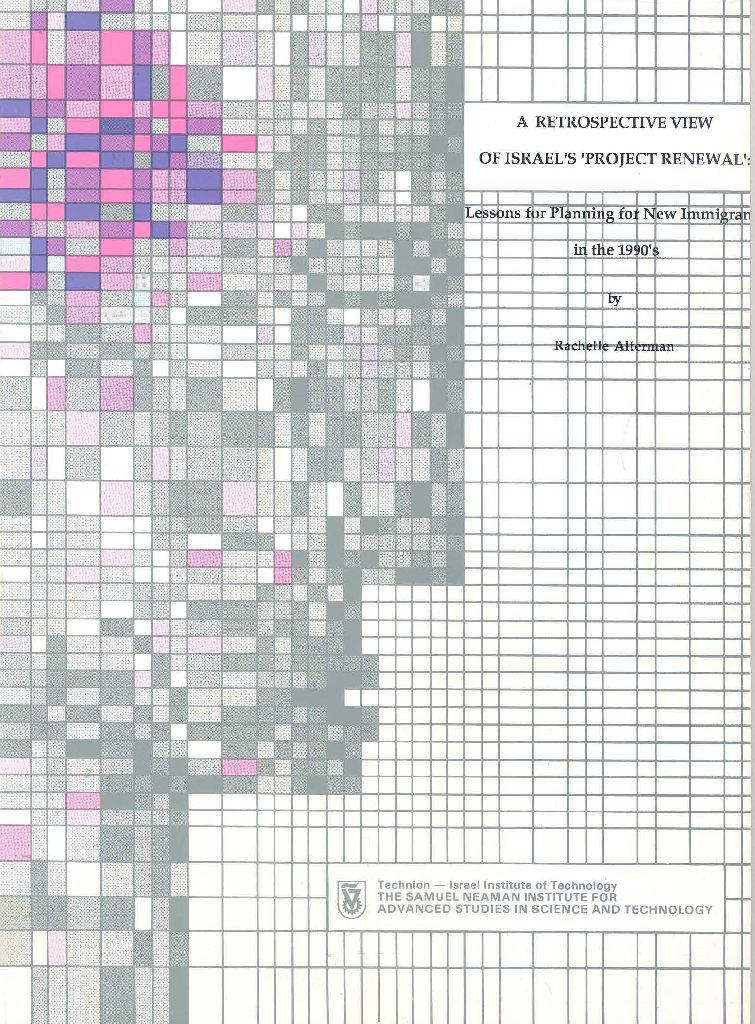“פרויקט שיקום שכונות” של ישראל הוא אחד מהתוכניות השאפתניות ביותר לשיקום שכונות בעולם מבחינת היקף וממדים. בשיאו באמצע שנות ה-80, פרויקט שיקום שכונות כלל תשעים שכונות. בישראל הקטנה, משמעות הדבר הייתה שרוב הערים והעיירות הזכאיות כללו לפחות שכונה אחת בפרויקט, וכי 700,000 אנשים נכללו בו – כ-16 אחוז מאוכלוסיית המדינה של 4.5 מיליון. עד סוף שנות ה-80, הפרויקט הוציא כ-800 מיליון דולר. מבחינת היקף, הפרויקט היה מקיף במודע, והציע תוכניות לשיפור דיור ותשתיות, העשרה חינוכית, רווחה, פעילויות קהילתיות ותרבותיות, שיפור שירותי בריאות, ובשנים מאוחרות יותר, התחלות צנועות בפיתוח כלכלי והכשרה מקצועית. פרויקט שיקום שכונות לא היה אמור לכלול העתקת אוכלוסיית השכונה או ג’נטריפיקציה. זה היה ניסיון לשאוב משאבים בינלאומיים על הדרכים החדישות ביותר להשגת שיקום שכונות. במידה מסוימת, פרויקט שיקום שכונות היה מבוסס על תוכנית הערים המודליות האמריקאית שכבר לא הייתה קיימת אז (Frieden and Kaplan 1987-1988), אך נמשך זמן רב יותר והוא גדול יותר יחסית לגודל המדינה.
פרויקט בהיקף כזה יכול להצליח רק על ידי שינוי מוסדות – שינוי דרכי קבלת ההחלטות שלהם והעצמת התושבים המקומיים. אחרי הכל, פעולות הממשלה – והיעדר פעולות – היו אחראיות להיווצרות רוב השכונות שזקוקות לשיקום, כפי שנראה בקרוב. מדיניות ממשלתית היא לעיתים קרובות חלק מהבעיה של שכונות בירידה, כפי שמשתקף בתלות הגוברת שלהן בשירותי הממשלה ובכוח המנוף המופחת שלהן (Alterman 1988). אנליסטים של יישום טוענים כבר למעלה מעשור שככל שתוכנית מוצעת עשויה להיות טובה, לא ניתן להניח שהיישום יעבוד פשוט על סמך המדיניות החדשה המוצעת.












